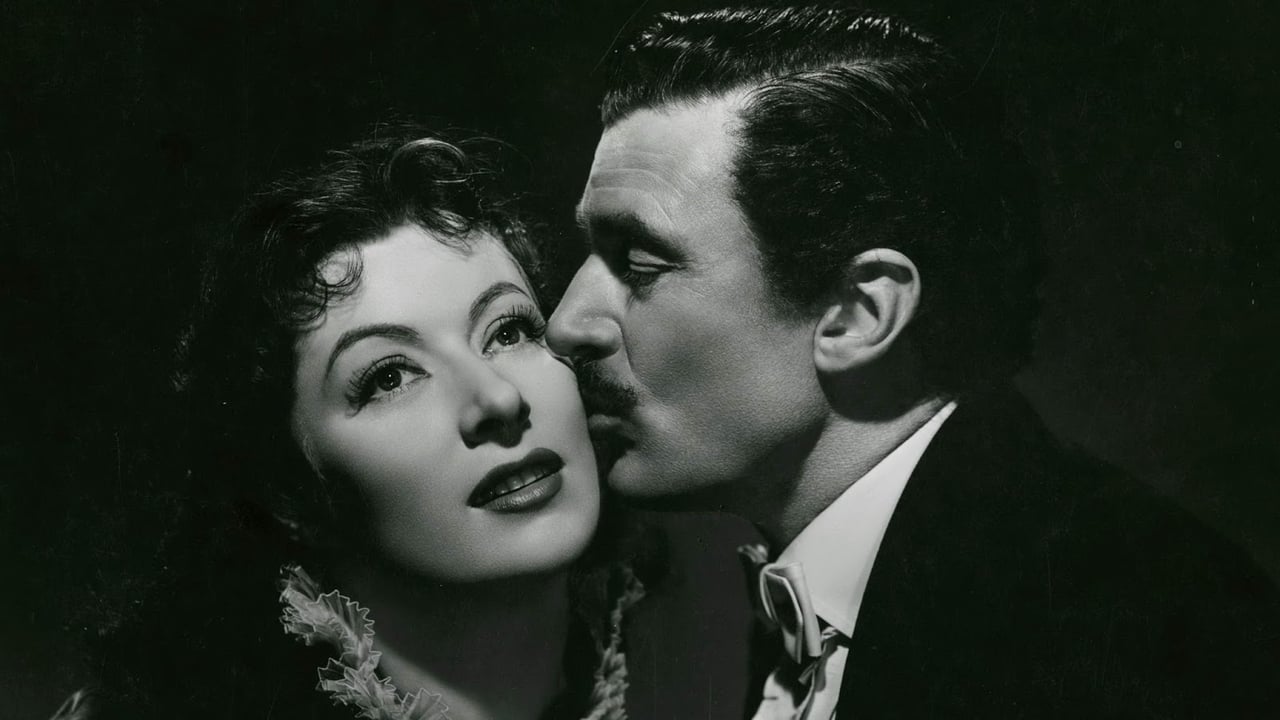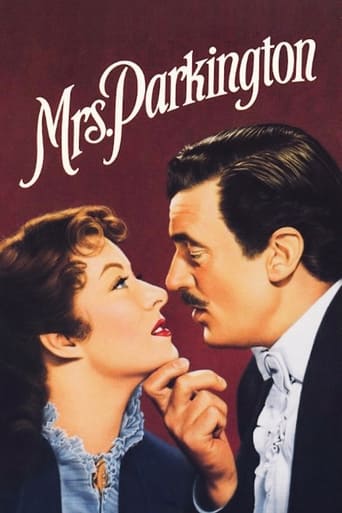

What a waste of my time!!!
... View MoreThanks for the memories!
... View MoreHighly Overrated But Still Good
... View MoreBetter Late Then Never
... View MoreGreer Garson lived to be 91 years old, and she never looked as she did as the older Mrs. Parkington and the older Madame Curie - all white.In this 1944 film, the Parkington family meets for Christmas, just before they all learn of a scandal which will impact the family fortune and the reputation of the family.Thinking about her husband, Susie (Greer Garson), the matriarch, now 84, thinks back to meeting her husband Gus (Walter Pidgeon) at her family boarding house in Leaping Frog, Nevada. The major, as he was called, owned the mine where everyone worked. Susie had always dreamed of being in high society, and she knew all about it and would fantasize about what it would be like. She gets her wish when, after the loss of her mother when the mine caves in, the Major and Susie marry and go to New York.There she meets Aspasia (Agnes Moorhead), the Major's former mistress, who takes Susie in hand and helps her to buy clothes and learn the ways of society. Susie and the Major have children and encounter tragedy and separation. With the Major gone now, Susie reflects on how best to handle this situation by asking herself what the Major would do.Really lovely film, with fine performances by Moorhead, Pidgeon, and of course, Garson. In the beginning she sports a black wig; I kind of missed, even in black and white, her flaming red hair. Strangely, Gladys Cooper plays Garson's daughter when Mrs. Parkington was 84. Cooper was 16 years older in reality. In those days, it was more economical for studios to use actresses under contract than borrow someone (though lending actors out was incredibly lucrative). Possibly Cooper was under contract and available. The film also features Edward Arnold, Dan Duryea, Lee Patrick, Tom Drake, Hugh Marlowe, Hans Conried, with Peter Lawford in a tiny role.Good movie.
... View MoreWith her son-in-law about to go to prison for fraud, the wealthy Parkington family faces financial ruin. Made up as an 84 year old woman, Greer Garson thinks back to her life with her husband, Col. Parkington, a wonderful Walter Pidgeon.It goes back to her humble beginnings and her meeting with the colonel.The film proves that money isn't everything as we see the ups and downs of the Parkington marriage, constantly beset by tragedies.Garson was nominated for best actress here and Agnes Moorehead, with a totally French accent, snared a best supporting actress bid as her rival turned friend.Gladys Cooper plays Parkington's daughter, a divorcée with a drinking problem. As is the case with the rest of the brood, she is selfish, self-centered and afraid of poverty. Obviously, the Parkington ways did not descend on children and grandchildren.The picture has an all-star cast. Cecil Kellaway stands out as the Prince of Wales, son of Queen Victoria.Garson shows her mettle here. She is a stalwart in every sense of the word.
... View MoreThis is an entertaining family saga from Louis Bromfield's novel, the kind of long, digressive trash wallow that still regularly tops best-seller lists. Essentially a subversive treatise on why inherited wealth is a bad thing, we observe the wealthy Mrs. Parkington as she copes with her selfish, dishonest middle-aged children in 1920s N.Y. while reminiscing about her stormy Gilded Age marriage to her late husband, a Wall Street cutthroat who made a vast fortune.Greer Garson wears a black wig in this role and -- surprisingly -- it really dims her luster. One misses that hair, so unmistakably red even in black and white, which usually illuminates her face. She also looks too old in the early scenes in which she's meant to be a teenager, and her acting is too arch in her scenes in old age. Even so, she's a suitable and sympathetic figurehead for this limousine ride of a movie. Walter Pidgeon is exactly what the part of the Robber Baron requires: physically imposing and masculine, stubborn and rakish by turns, he is never dynamic but always convincing.There are several worthwhile points of interest here: In a role that earned her a Supporting Actress Oscar nomination, Agnes Moorehead gives a vivid performance as the French mistress that Parkington insensitively presses into service to make his wife the queen of N.Y. society. Moorehead's efficient acting suggests everything about this woman's precarious existence as well has her combination of artifice and pragmatism. She's like a character out of Trollope. A slightly lesser revelation is Gladys Cooper, cast against type and showing surprising depths of cynicism as a suicidal playgirl. In addition, the film is more frank and relaxed about sexual philandering (both pre-and extra-marital) than one would expect from an MGM film of 1944. And several of the sets, most notably the spectacular rendering of the Parkington mansion on Fifth Avenue (including an entry hall that doubles as a ballroom, complete with two endlessly curving staircases and a colonnade of pillars that leads to a dining hall seating 100) are prime examples of the opulent art direction one routinely enjoys in Hollywood pictures of the '40s.Finally, although the first third of the film sometimes drags, there are two excellent set pieces that are beautifully constructed and lovingly detailed by director Tay Garnett. The first is a Parkington dinner party to which N.Y.'s 400 are invited -- the pervasive tension and gradual buildup to disaster are really memorable here, as is the use of the film's most impressive set. The second is a very droll bit of drawing room comedy during which Mrs. Parkington meets and enlists the aid of the Prince of Wales to win back her husband from the clutches of an English society hostess. The polite bitchery between the ladies is delightful. Prospective viewers can decide if this list of pleasures justifies a look at this luxe movie.
... View MoreThis superficial, ultra-glossy family saga features an outstanding cast, but like so many MGM efforts, that does not a good film make. Garson is unconvincing in her scenes as the aged matriarch, and her usual warmth is missing in one crucial scene: The maid has just told Agnes Moorehead how Mrs. Parkington is still, after a a year, despondent over the death of her son, when we see Garson, pouting like a young girl who's been told to get off the telephone.Walter Pigeon, however, is quite good in a rare role as a less than perfect gentleman. Overall, solid story telling. But is the story worth telling?
... View More